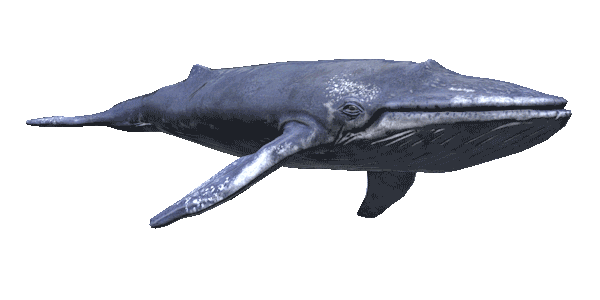Group CEO’s Message
Tan Chong Meng

The world experienced another challenging year in 2022. Although most countries were emerging from the global pandemic, many continued to suffer from the negative aftershocks which were compounded by the war in Ukraine, higher energy prices, global inflation and supply chain disruptions.
Despite the challenges, the PSA Group kept an even keel as we planned ahead and stayed focused on strategic priorities, handling 90.9 million Twenty-foot Equivalent Units (TEUs) of containers for the year globally. Of this, PSA Singapore contributed 37.0 million TEUs (-0.7%) and PSA terminals outside Singapore moved 53.9 million TEUs (-0.7%); while on the cargo solutions side of our business, PSA BDP achieved over 1.75 million shipments for the year.
Here, I would like to express my deepest gratitude to our management, staff and unions for their resilience and adaptability through trying times. Their commitment to excellence by working together as a team, as well as closely alongside our stakeholders, helped to keep supply chains open and trade flowing. My heartfelt thanks also to our Board of Directors for their insightful counsel, as well as to our valued customers and partners for their continued support and trust.
ORGANISATIONAL TRANSFORMATION
2022 was a landmark year for the PSA Group. Even as we continued to build on our core business of ports and terminals, we also widened our focus towards enabling more agile, resilient and sustainable supply chains through the acquisition of BDP International, a global logistics solutions provider.
In line with PSA’s long-term strategy, the organisation has now been restructured into two core businesses – Ports and Cargo Solutions, with mid-mile logistics being value-added services that we term ‘Port+’, our unique service differentiator. This change was fundamental to our transformation into a more customer-focused organisation. We are now more enabled to develop the necessary capabilities and technologies to better serve an expanding customer base that includes cargo owners, shipping lines and supply chain service providers.
At the same time, we recognise the key role that culture plays in the successful transformation of organisations, and so we will be investing efforts to strengthen our FISH culture to foster a more inclusive, diverse, and collaborative environment – one that values innovation, people development and continuous learning to build our talent capabilities to meet the challenges ahead.
EXTENDING GLOBAL NETWORK IN PORTS AND TERMINALS
During the year, we continued investing and upgrading our terminals to better serve our customers.
In September 2022, the official inauguration of the first phase of Tuas Port marked a historical milestone in Singapore’s maritime history. When fully operational in the 2040s, Tuas Port is expected to be the world’s largest fully-automated container terminal in a single location. Its incorporation of world-class technologies to support value-added port services and cargo solutions will reinforce Singapore’s status as a global maritime and logistics hub port in the digital age.
In Canada, following PSA’s acquisition of Ceres Halifax Inc. in April 2022, PSA Halifax’s operations have expanded to cover two container terminals – Atlantic Hub and Fairview Cove; this will catalyse its transformation from a coastal to global hub port.
PSA Sines in Portugal celebrated the first stage completion of its Phase III expansion in July. When fully completed in 2028, the EUR300 million project will double the terminal’s annual handling capacity and make PSA Sines one of the largest employers in the region.
In October, PSA Belgium and the Port of Antwerp-Bruges officially launched the EUR835 million Europa Terminal upgrading project, of which PSA is investing EUR500 million. With completion expected in nine years, the upgraded terminal will offer a 40% increase in capacity and over 50% reduction in carbon footprint.
DCT Gdańsk in Poland rebranded itself as ‘Baltic Hub’ and launched the construction of its third deepsea terminal in October. Upon expected completion in 2025, Baltic Hub will become one of the largest container terminal hubs in Europe.
EXPANDING OFFERING IN CARGO SOLUTIONS
During the year, PSA embarked on various initiatives to boost supply chain resiliency and connectivity.
2022 saw PSA’s successful acquisition of global logistics solutions provider, BDP International, which was subsequently rebranded to PSA BDP in April 2023. PSA BDP’s expertise in end-to-end supply chain services, coupled with PSA’s global network will unlock greater customer value and create new opportunities for business growth.
In March 2022, Saudi Global Ports formally assumed the operatorship of the Riyadh Dry Port (RDP) Ecosystem under a new entity ‘SGP Riyadh’, and is expected to invest over 250 million Saudi Riyals to develop world-class logistics solutions for customers in the regions served by the Riyadh-Dammam railway.
In June, Sino-Singapore Chongqing DC Multimodal Logistics launched the first phase of the China-Singapore Chongqing Multi-Modal Distribution and Connectivity Centre, to provide logistics solutions for customers within the region and beyond.
During the year, several PSA units established new cargo connections with their partners to better serve their hinterlands. These included rail connections between Baltic Hub, Czech Republic, Slovakia and Hungary; and between PSA Mumbai and the city of Cochin. PSA’s China terminals continued to support the International Land-Sea Trade Corridor (ILSTC) initiative – our ILSTC footprint now encompasses the Beibu-Gulf PSA International Container Terminal in Qinzhou, the CUIRC network of rail depots and the Chongqing Multimodal Logistics Hub.
FACILITATING TRADE THROUGH DIGITALISATION AND TECHNOLOGY
As a global port operator and cargo solutions provider, one of PSA’s priorities is to facilitate sustainable trade through technology and innovation.
In January 2022, PSA Cargo Solutions SEA was appointed the lead logistics service orchestrator for Hyundai Motor Group Innovation Center’s smart factory in Singapore (HMGICS), which will produce the first electric vehicles (EVs) to ever be made in Singapore. The partnership will see co-development of advanced logistics solutions to meet the requirements of HMGICS’s EV production.
A year later in 2023, our collaborations in the automotive industry ramped up when Automotive Cells Company, one of Europe’s leading EV battery manufacturers, selected PSA BDP to be their logistics partner in the Northern France region. Elsewhere, PSA’s Fuzhou Container Terminal, PSA Fujian Supply Chain Solutions and SAIC Motor, China’s largest car manufacturer, also formed a partnership to develop and operate one of SAIC’s export port hubs in southeast China.
Over in Saudi Arabia in 2022, PSA’s Saudi Global Ports signed a Memorandum of Understanding and completed proofs-of-concepts with Saudi Telecom Company and Huawei Technologies Co. Ltd Saudi Arabia, to accelerate digital transformation at King Abdulaziz Port Dammam under the Saudi Port Authority (Mawani) Smart Ports Initiative.
CrimsonLogic and PSA BDP co-developed Smart Classify, a digital workflow application that also leverages the capabilities of PSA’s digital supply chain platform CALISTA™ to support the needs of shippers’ trade compliance programs and their product classifications.
PSA and PSA BDP also encouraged industry collaboration by hosting the inaugural Internet of Logistics + Supply Chain Summit in Singapore. Industry leaders at the event included Schneider Electric, Google, Maritime & Port Authority of Singapore, CMA CGM, ExxonMobil and the Global Centre for Maritime Decarbonisation. Following this event, PSA BDP hosted a series of Supply Chain Summits in Antwerp, Istanbul, Dubai, Houston and Mumbai.
COLLECTIVE ACTION FOR DECARBONISATION
We continued to participate in cross-industry platforms that galvanise collective action among stakeholders to decarbonise global supply chains and co-create solutions for more sustainable trade.
In January 2022, I was honoured to assume the Governor Chair for The World Economic Forum’s (WEF) Supply Chain & Transport Industry Community. Together with my PSA team, we have actively supported various WEF initiatives, including the Stakeholder Capitalism Metrics that aims to establish consistent global environmental, social and governance (ESG) reporting standards; and the First Mover Coalition’s Infrastructure Pillar which seeks to harness the purchasing power of companies to decarbonise ‘hard to abate’ industrial sectors.
PSA is also working, together with other leading organisations, in partnership with Smart Freight Centre and the World Business Council for Sustainable Development to produce a new guidance that will help companies better quantify and measure their logistics emissions from end to end. This was published in Davos in January 2023.
PSA Singapore joined ‘The Silk Alliance’, dedicated to the development of a fleet-specific fuel transition strategy for container ships operating in the wider Asia region.
Further into this Report, we have furnished more information on our Group’s climate action efforts. I also invite our stakeholders to view our annual Sustainability Report, available on our website, which offers a comprehensive read of PSA’s sustainability milestones.
TOWARDS A SUSTAINABLE FUTURE, ALONGSIDE
Successful companies put customers and societal stakeholders at the heart of everything they do. Despite the economic uncertainties that may lie ahead, I am confident that the organisation is now poised to be more resilient, agile and aligned to drive sustainability in the days ahead. We will continue to work closely alongside our customers, partners and stakeholders, towards our mission of being a supply chain orchestrator and facilitator of sustainable global trade, to move the world’s goods for the greater good.

TAN CHONG MENG
Group CEO






























